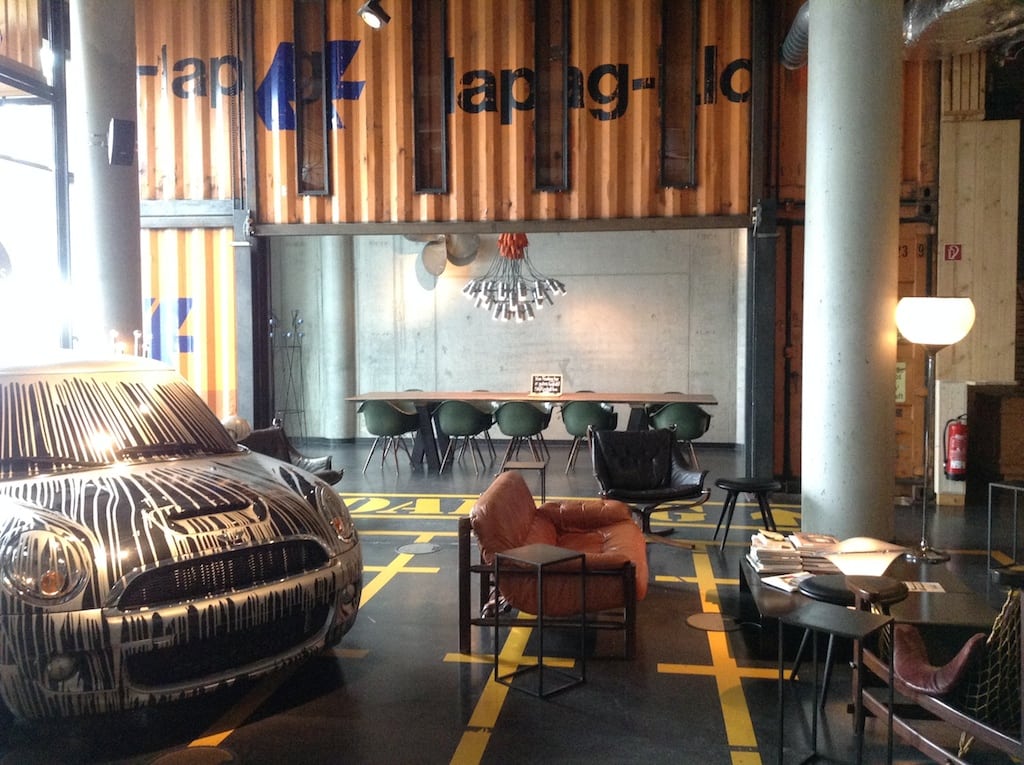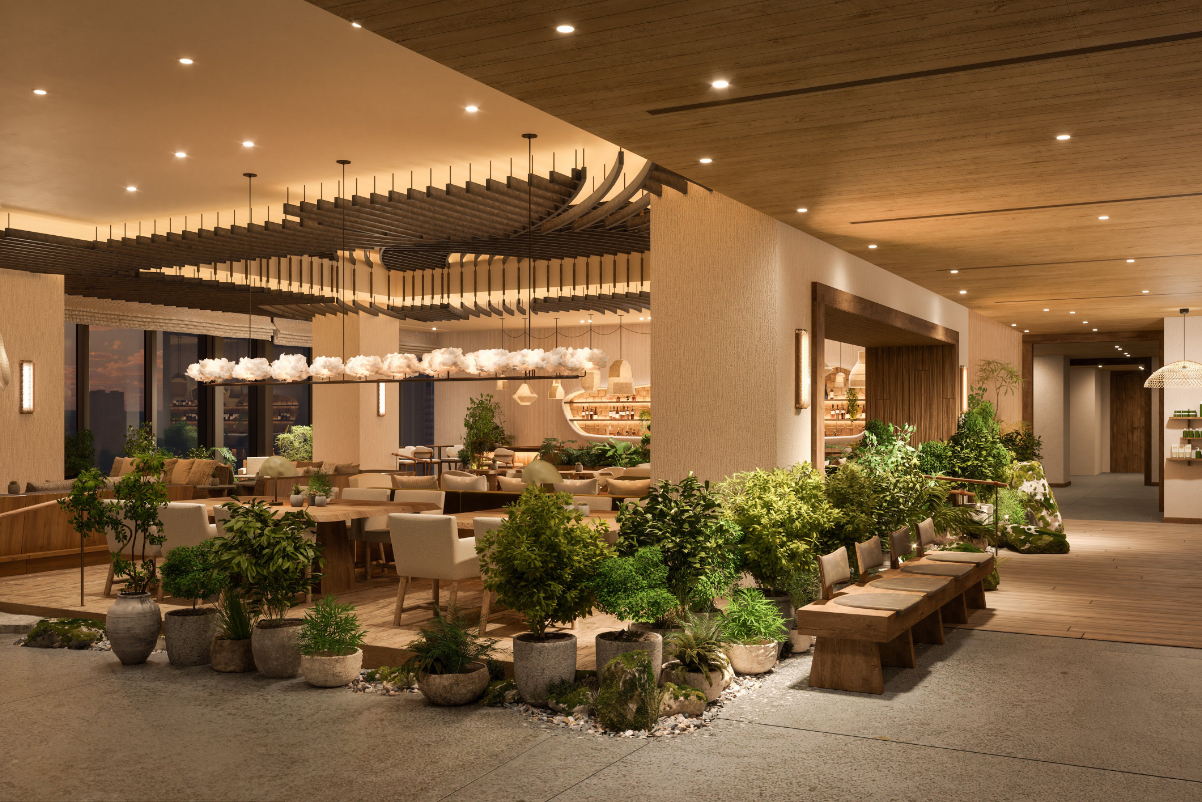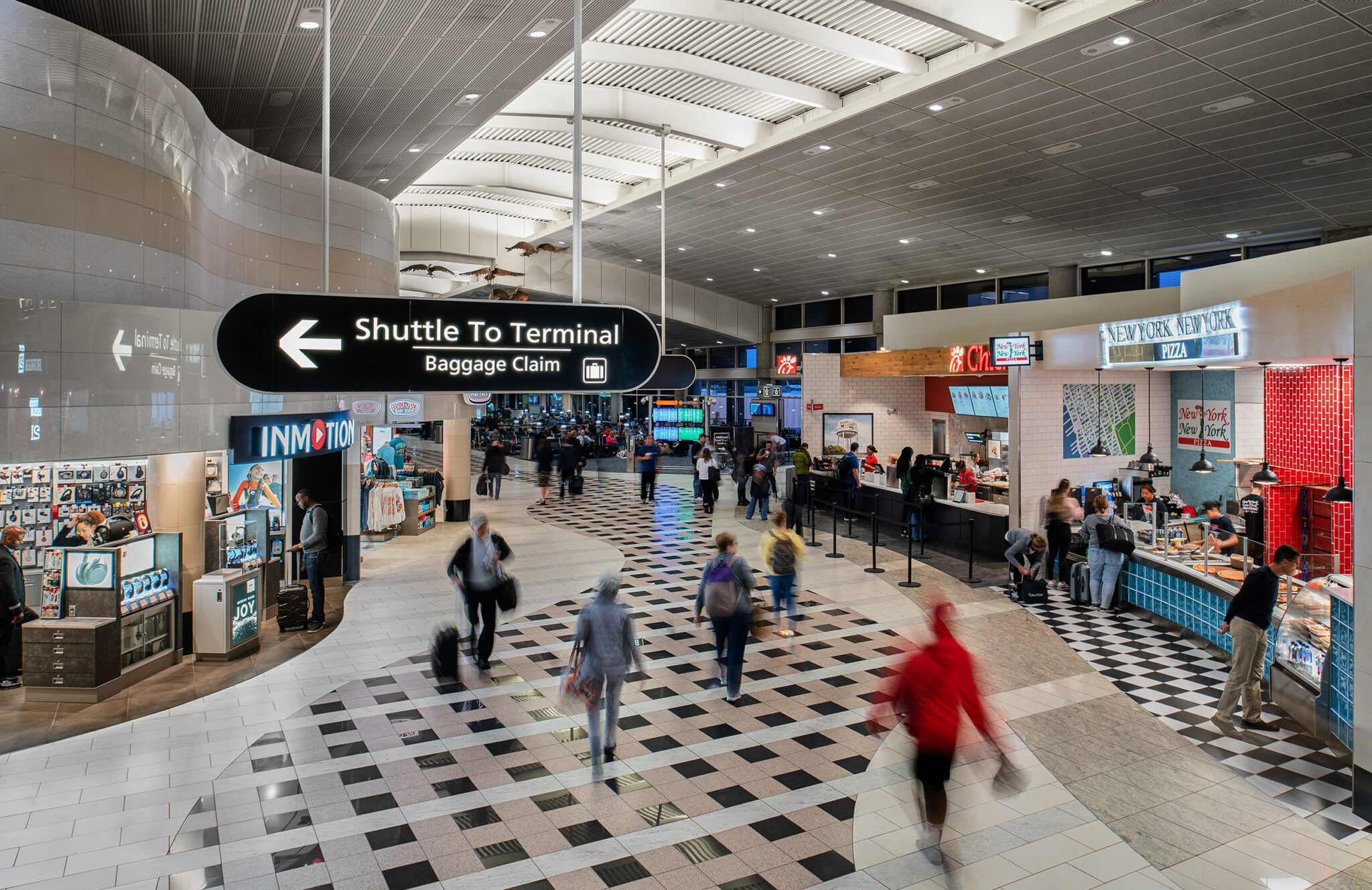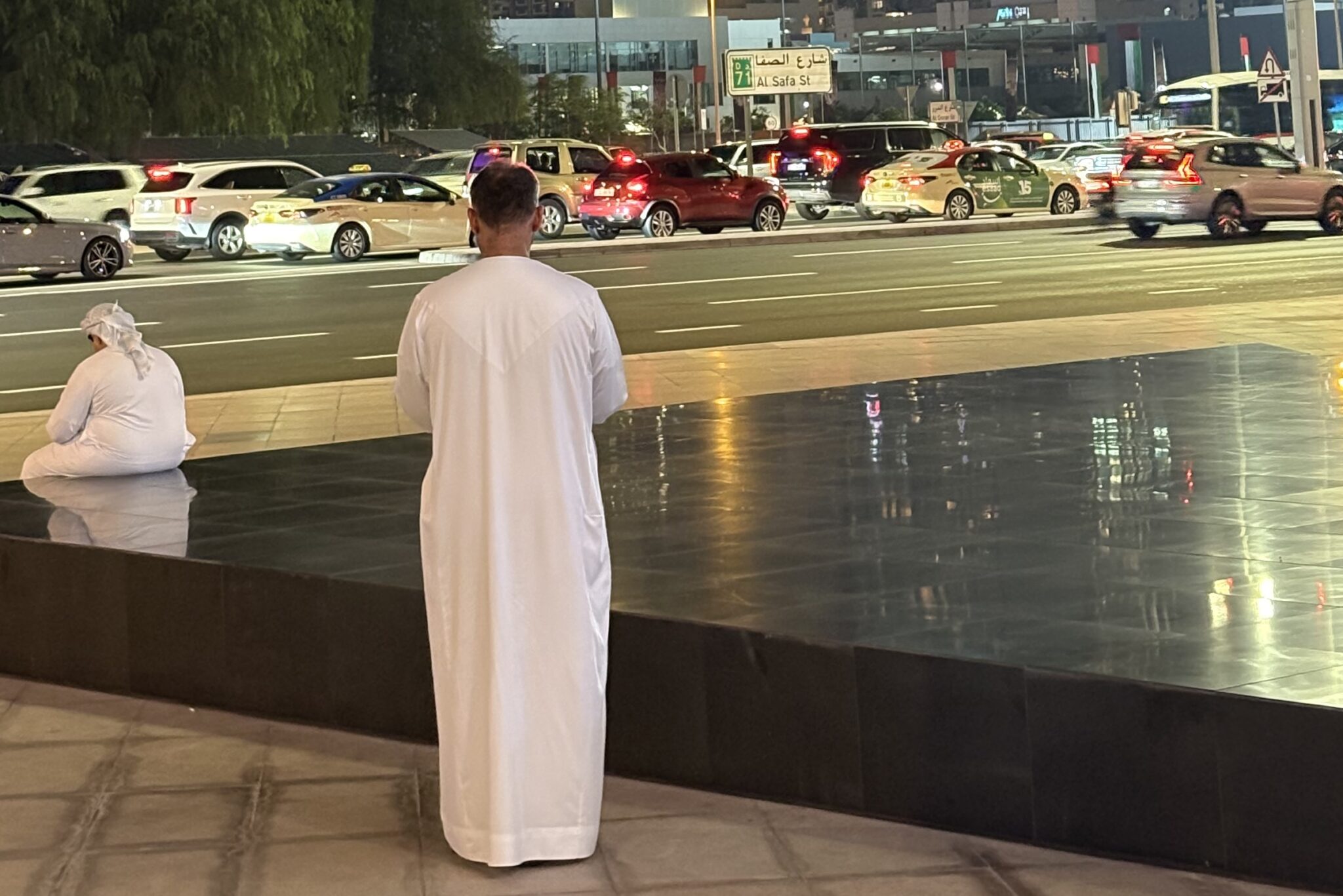Europe's Hip 25hours Hotels Injects Storytelling Into Business Travel

Skift Take
One of the most creative small hotel brands in Europe doesn’t use a lot of sophisticated apps, video walls or smart TVs to share info about interesting people, places and events in the hotels' local destinations.
It puts out a newspaper instead.
This year, Hamburg-based 25hours Hotels hired the Berlin-based Freunde von Freunden media company to produce its Companion in-room newspaper. Incorporating a smart low-fi layout, the tabloid profiles creative people working in Hamburg, Frankfurt, Berlin, Vienna and Zurich where the seven 25hours Hotels are located.
That’s what 25hours Hotels does best—telling unique stories in a user-friendly way.
In terms of hotel product, there’s no real consistency across the portfolio's physical assets or interior design, because each property's storyline is developed to mesh with a specific neighborhood's history and culture. The brand's unofficial tagline is: "You know one, you know none."
The brand consistency, rather, revolves around four simple branding bullet points:
- Come as you are
- Real place, real people
- Let’s spend the night together
- Almost home
“‘Come as you are’ I think is the most important one because we don't care if you’re a gay couple, straight couple, businessman in a suit, businessman without a suit, or family,” says Felix Sigel, sales/marketing manager. “'Real place, real people' is kind of self-explanatory, but it doubles for the way we treat our employees too.”
The “Let’s spend the night together” line is a cheeky play on words to connote a certain intimacy shunning pretension and stuffiness. “Almost home” suggests to guests that if they’re going to be staying in a foreign place, they might as well make themselves comfortable.
“People should feel at home here,” asserts Sigel. “It should feel like their living room, they should make this their home."
That’s easy to do while sitting with Sigel in the Vinyl Room at 25hours Hotel Hamburg HafenCity, where he plays one of the 1,000+ vintage LPs lining the shelves. And yes, it's true, Germans really do have a thing for David Hasselhoff as a singer.
The Vinyl Room is part of the eclectic Club Floor above the lobby, located next to multiple other living areas with old school Atari games, funky yet comfy couches and chairs, a tea bar, communal work table and outdoor garden.
This is where Europe is ahead of the U.S. in hotel lobby design, offering so many different rooms with alternating energies and experiences tied together as a seamless “lobby journey,” if you will. Here at 25hours HafenCity, there are two floors and a dozen different spaces for guests to discover their favorite hangout.
The ground floor lobby is an eye-opener. A full-size orange Hapag-Lloyd shipping container houses The Boardroom, with one wall of the container cut out to create a giant sliding door. Next to that in the lobby seating area, there’s a black Mini Cooper dripping in silver paint, a wall of high-end bikes for sale, and a busy little shop with urban design books, where you also pick up keys for the free bike rentals outside.
The shipping container signals the seafaring theme throughout the hotel.
"It wasn't too difficult to figure out what story we needed to tackle here," Sigel says. “We have the cruise terminal across the street and we're in a harbor town, but we didn't want to be a 'harbor-y hotel.' We didn't want to put a bunch of anchors on the wall and say, ‘This is Hamburg.’"
Instead, Markus Stoll, 25hour’s brand storyteller, interviewed 25 sailors in the Seaman’s Club Duckdalben in Hamburg. He wrote out each sailor's story for the guest room log books, retelling tales of homesickness for some and a girl in every port for others. Artist Jindrich Novotny added illustrations, which were then reproduced for the guest room wallpaper.
The log books are stored in steamer trunks—"like those ones Louis Vuitton has," says Sigel—containing a desk, media panel and mini-bar.
24 Hours Are Not Enough
As a brand, 25hours Hotels’ customer mix is about 70-75% business, but due to the properties’ creative nature, they attract a diverse array of business clientele and personality types.
Sigel explains that what makes 25hours Hotels so attractive to all kinds of people also provides certain challenges in staff training. In German, for example, as in French and Spanish, there are casual and formal ways to address people, using either the familial “du” or proper “Sie.”
“It's a very thin line we're moving along because we're charging quite a lot of money for the rooms,” says Sigel. “So if you charge 200 euros a night without breakfast, you might have guests who don't want to be spoken to in the 'du' form. So the staff has to be able to switch automatically into four- or five-star hospitality at any time.”
We mentioned to Sigel how the complexity of multiple public spaces covering two entire floors is something we don’t see very often. That's part of the reason why the hotel is one of the busiest gathering places in the HafenCity district for locals.
“Our owners don’t believe in business people sitting alone at breakfast reading a newspaper,” he explains. “They believe in people connecting, and that was over 10 years ago, so we have serious areas to do work and areas to chill out. People talk here, they don’t hang out in their rooms.”
A couple days later in central Frankfurt near the main train station, the roof of the 25hours Hotel Frankfurt by Levi’s is packed during a weekly DJ party. The lobby, courtyard and street out front are filled with young professionals in various states of disarray.
Meanwhile, 25hours Hotel Frankfurt The Goldman is located near the new European Central Bank HQ building presently under construction in the upscale Ostend district. The hotel is an entirely different scene, where the refined Oost Bar and Goldman Restaurant cater to upscale couples holding hands in the candlelight.
“There’s always this change in personality from hotel to hotel; each hotel is completely different than the other, and with completely, I mean completely,” says Sigel. “People want things that are special for them, and that they can tell stories about, business or leisure, and they want it 24/7. This whole storytelling thing is getting more and more ingrained in German culture.”
Looking ahead, there has been talk about the next 25hours Hotel opening in Munich, or possibly a second Zurich property that would operate completely off the city’s electrical grid. There’s also interest in Barcelona, Amsterdam and Copenhagen, and eventually a second hotel in HafenCity.
We asked Sigel if there’s been any discussion about the U.S.
“Yeah, I think it’s a big dream for every German company to go to the U.S.”
And why “25hours?”
“Because 24 hours just isn’t enough. We give you a little bit more life here because you can relax quicker. It’s really what you make of it.”
Greg Oates covers hotel/tourism development and travel brand media. email/twitter




